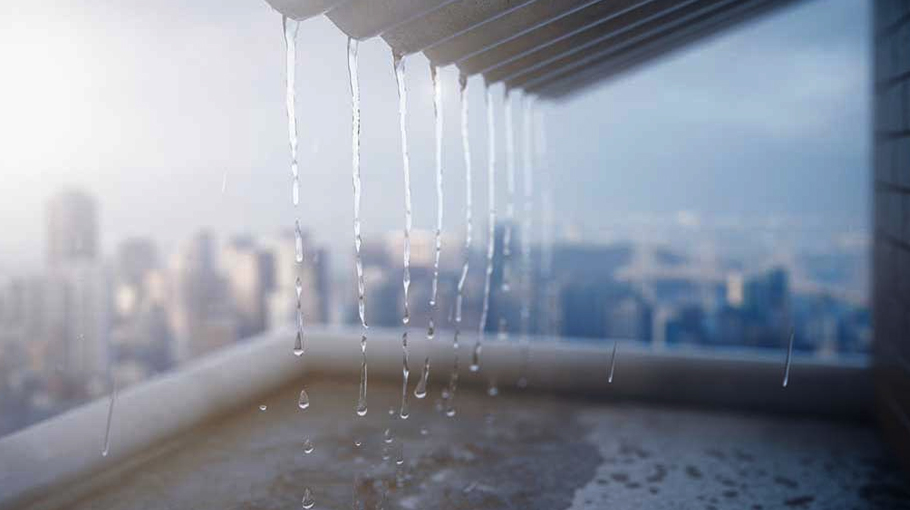Rainwater harvesting project set for ECNEC nod

The Executive Committee of the National Economic Council (ECNEC) is likely to approve a total of 12 projects including a special project to harvest rainwater in 10 coastal districts of the country.
Prime Minister Sheikh Hasina will virtually preside over the Ecnec meeting from her official Ganabhaban residence next Tuesday while Ministers, State Ministers, Planning Commission members and secretaries concerned are to attend from the NEC Conference Room in the city's Sher-e-Bangla Nagar area.
The meeting will place 12 projects for approval. The projects are Procurement of 200 Broad Gauge (BG) Passenger Carriages for Bangladesh Railway, Local Government COVID-19 Response and Recovery (LGCRR), Water Supply through Rainwater Conservation in Coastal Districts, Establishment of Air Force Training Institute BAF Base Zahurul Haque in Chattogram (1st Amendment) and Improvement of Governance and Management Research and Training Facilities.
Besides, upgradation of 3 Regional Highways and 3 District Highways under Naogaon Road Division to proper standard and efficiency, External Telecommunication Network for Rooppur Nuclear Power Plant, Increase in irrigation area and irrigation efficiency and introduction of experimentally deep irrigation system and Establishment of Seed Growing Farm in Bangladesh South East will be placed in the meeting.
In addition, remaining projects are increasing irrigation area and irrigation efficiency through augmentation of underground irrigation system and introduction of experimental drip irrigation system, development of universal social infrastructure-2 (GSIDP-2), construction of important bridges on rural roads (Phase II) and paving and strengthening of important upazila and union roads in Barisal division.
Among the projects, a project titled “Water supply through conservation of rainwater in coastal districts” will be placed in the meeting.
The project has been undertaken to conserve rain water in 222 unions of 44 upazilas of 10 coastal districts of the country.
The total cost for its implementation will be Tk 961.75 crore. If the project is implemented, rain water will be conserved in the coastal areas due to increase in salinity-arsenic contamination and so on in the coastal areas of the country.
This water will be supplied to the residents of the project area.
About the main objective of the project, it has been said that under the project 206,872 rain water harvesting infinites (conservators) will be constructed.
Besides, the coverage of self-managed water supply in the project areas will be increased to 60.1 percent by 2030.
If approved, it will be implemented by June 2024 by the Department of Public Health Engineering.
Mamun-al-Rashid, member (secretary) of the Physical Infrastructure Division of the Planning Commission in charge of the project, said that if the project is implemented, it will be possible to supply salinity and arsenic-free pure water to the locals by conserving rainwater in 222 unions of 44 upazilas of 10 coastal districts.
This will increase the safe water supply in the coastal areas, he added.
The project proposal states that the main victims of climate change are the coastal areas of the country.
As a result, sea level rise, storms, tidal surges and other natural disasters cause salinity to spread not only on the surface but also on the groundwater table.
It has also been observed in some areas that no source of potable water has been found there.
Even river, canal, beel and pond water is not free from salinity, and the salinity increases during the dry season.
Drinking water from all these water sources cannot be used for household purposes.
Due to the lack of fresh water, the residents of the area are forced to drink this salty water and suffer from high blood pressure, various complications during pregnancy in women, kidney disease and skin diseases.
The project has been taken up in 10 out of 19 coastal districts of the country.
The acceptable level of salinity in drinking water is 500 ppm, while in some coastal areas of the country the amount is almost two to three times higher.
Freshwater sources are scarce in many coastal regions so water has to be collected from far away sources.
Therefore, initiatives have been taken to use rain water in all these areas.
These areas which are prone to salinity, will be able to make up for the lack of potable water. This technology for storing rainwater is very old.
This is a very popular method not only in Bangladesh but also in many countries of the world which are prone to salinity or lack of potable water.
Where there is an abundance of rain, the residents store this rainwater for a certain period of the year which they can use later.
The proposal further said that a total of 5,950 rainwater harvesting systems have been set up under the recently completed project titled “Safe Water Supply in Rural Areas of Khulna, Bagerhat and Satkhira Districts”.
Installed rainwater harvesting systems are in operation and good quality.
The project will be implemented in the following coastal regions of the country.
In 44 upazilas in 10 coastal districts of the country, Tungipara, Gopalganj Sadar, Kotalipara, Kashiani, Muksudpur upazilas of Gopalganj district.
In Koira, Dumuria, Terkhada, Dakop, Paikgachha, Batiaghata and Rupsha upazilas of Khulna district.
In Kuchua, Chitalmari, Mongla, Morelganj, Rampal and Sharankhola upazilas of Bagerhat district.
In Asashuni, Kalaroa, Kaliganj, Tala, Debhata, Shyamnagar and Satkhira Sadar upazilas of Satkhira district.
In Barguna Sadar, Patharghata and Bamna upazilas of Barguna district.
In Nazirpur, Pirojpur Sadar, Bhandaria, Mathbaria and Indurkani upazilas of Pirojpur district.
In Kanthalia, Nalchiti and Rajapur upazilas of Jhalokati district.
In Kalapara upazila of Patuakhali district. Anwara, Sitakunda and Sadwip upazilas of Chattogram district and in Sadar, Kutubdia, Maheshkhali and Tekhnaf upazilas of Cox's Bazar district.



